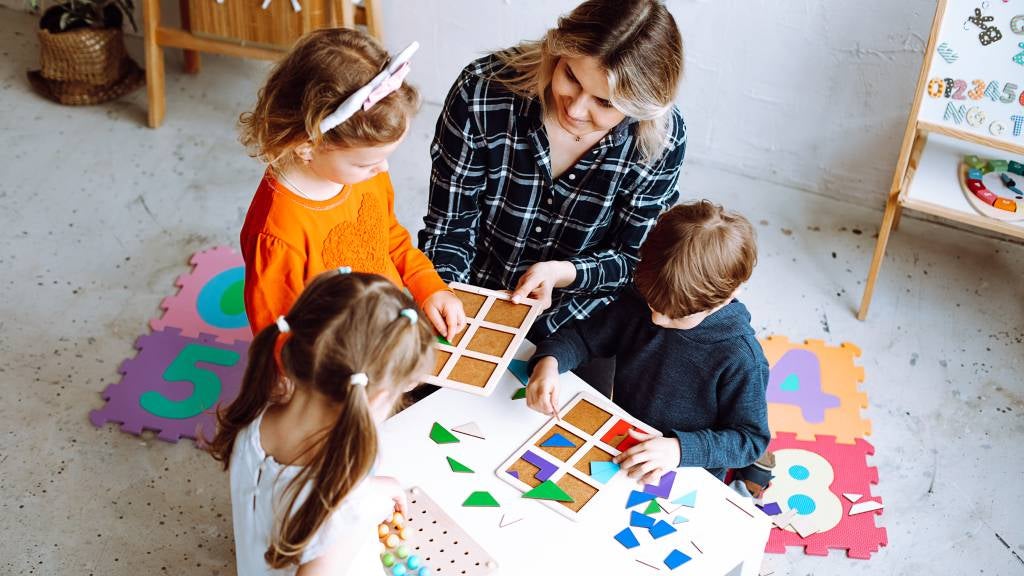5 ways your child benefits from early childhood education

Babies are marvels. Perhaps it doesn’t feel like it when you’re cleaning up the third nappy blowout in 24 hours, but they really are a wonder.
That’s because they start learning and developing at an incredibly young age. As grown-ups, we can tap into that phenomenal development journey and help their brain grow with early education (even when that early learning looks a whole lot like play).
Here are five ways early childhood education can truly benefit your child.
1. Cognitive development: Enhancing learning and thinking skills
Cognitive development is all about how young ones explore, figure things out, and generally think. It helps them to understand the world around them and problem-solve, giving them a great foundation for learning as they grow. Research from the Growing Up in New Zealand study shows that children up to the age of three are still developing the ability to comprehend screen media.
And while cognitive development has a high-brow academic name, the act itself can be quite simple. For example, letting your baby move about and explore their toys can be great for cognitive development, as can exposing them to books and puzzles, indulging their interests, and answering all those never-ending ‘why’ questions.
2. Social and emotional development: Building relationships and self-awareness
Part of early childhood education includes social development as they play with others. So while you get to sit back and enjoy a cuppa while it’s still hot for once, your little one gets to play with young ones of the same age – it’s a win-win.
Early childhood socialisation can help them learn how to share well with others, build relationships, and refine their social skills.
Plus, their teachers (you and/or professional teachers) can model good social behaviours, such as how to be empathetic, tolerant, and generous. All of this combined with positive reinforcement for good social behaviours (such as sharing and kindness) can help to set up a child with strong social and emotional development for years to come.
3. Language and communication skills: Fostering verbal and non-verbal abilities
Communication and language are inherent throughout early childhood education, and plays an important role in all other areas of a child’s development. The better they understand, the better they can learn, and the better they can make their needs and interests known through their own communication, the more we can help them grow.
Early childhood education strongly promotes language and communication skills, with educators guiding early language experiences that specifically strengthens a child’s processing and builds their vocabulary.
4. Physical development: Developing their motor skills
From the day they are born, babies start squirming and grabbing everything they can with their shockingly strong little hands. Then it never stops.
All of their movements and physical play throughout those early years contribute to the development of their motor skills. That’s why early childhood education incorporates tools kids love, from using child-friendly scissors to stacking blocks and holding crayons, as they help kids practice those skills.
Eventually, these skills progress into tougher challenges such as tying shoelaces, doing up buttons and helping pack their lunchbox each day.
5. School readiness: Preparing for a smooth transition to school
Last but not least, early childhood education helps prepare young children for their transition into school years.
It helps to teach them basic habits such as hanging up their bags and coats, asking to use the toilet (and going independently), sitting still during activities, sharing with others, and so much more. Even if they haven’t mastered some of these areas, it’s still a great start so they’re not completely in a new environment when they start school.
Never stop learning
Throughout life, learning never really stops. For example, did you know that there are life insurance policies covering 4.1 million Kiwi’s in New Zealand as of March 2023? Even though some people may have more than one policy, that’s still a lot.
Your littlies might be a bit young to learn about it all, but if you’d like to learn more about life insurance and what it could offer your family, don’t hesitate to request a quote or give us a call.
9 Oct 2023